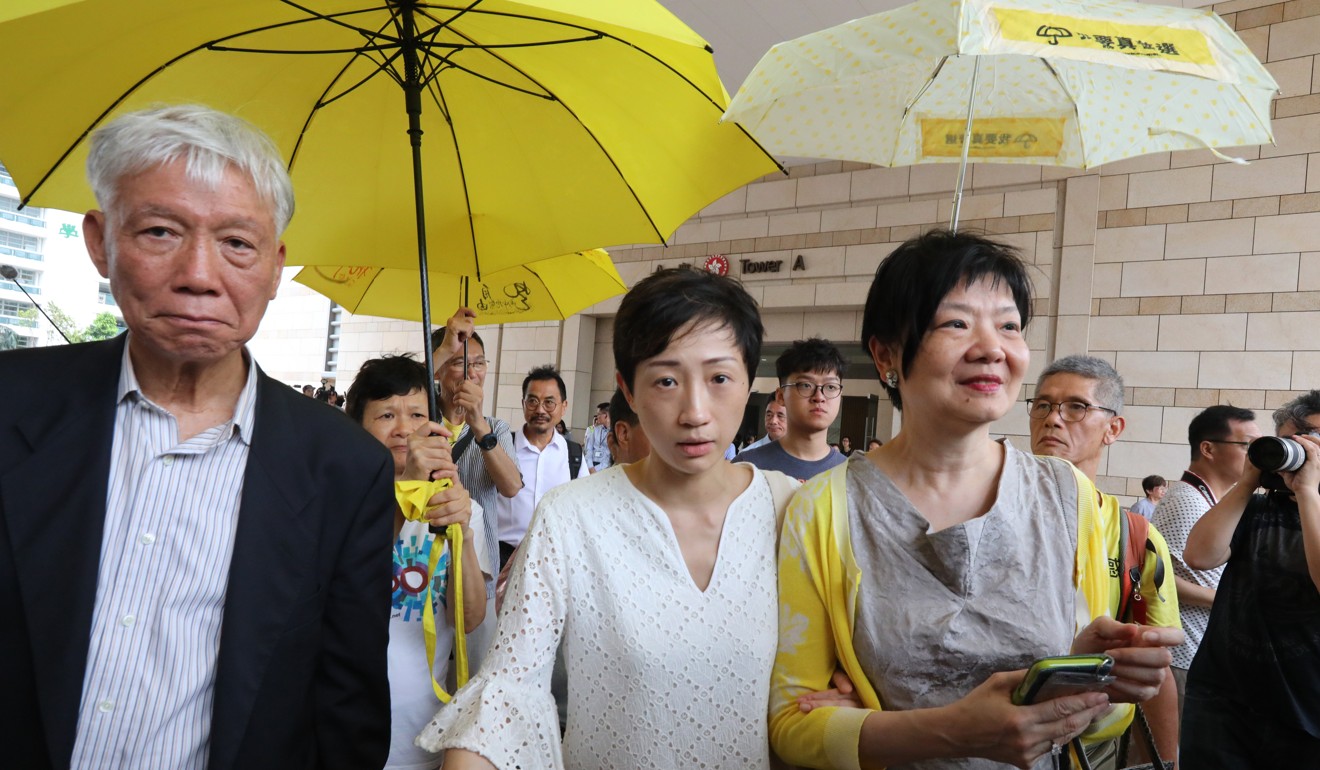
Hong Kong lawmaker Tanya Chan appeals against Occupy Central convictions
- All nine of those convicted for their roles in the 2014 protests have now lodged appeals following Chan’s announcement
- The democrat reveals bid to clear her name after she was found guilty of incitement charges in April
Civic Party legislator Tanya Chan, who has been struggling with brain conditions, revealed the bid to clear her name on her Facebook page on Tuesday.
All nine of those convicted in relation to the largest campaign of civil disobedience the city has seen have now lodged appeals.
“This morning I submitted my appeal application to the court,” she said in a post on her social media page.

Chan was convicted of the public nuisance charges after trial along with eight others, including the Occupy movement’s founder Benny Tai Yiu-ting, Chan Kin-man and Reverend Chu Yiu-ming.
Defying 87 rounds of police tear gas, protesters occupied major thoroughfares in the city for 79 days in the name of democracy, starting from September 28, 2014.
She underwent surgery, but it was not possible to remove the tumour completely. She was left with side-effects affecting her vision and balance, and she required further radiotherapy treatment.
Judge Johnny Chan Jong-herng suspended her sentence for two years, saying it would be in the interests of justice for Chan, 47, to continue her treatment outside prison.
Following Chan’s application on Tuesday, all nine had filed appeals against their convictions and, in some cases, their sentence.

Tai, 54, a law scholar, and Chan Kin-man, 60, a retired sociologist, were jailed for 16 months after being found guilty of conspiracy to cause a public nuisance and another of inciting others to do the same.
Chu, 75, was handed a 16-month suspended sentence due to health concerns after being convicted of a conspiracy charge.
They were all appealing against their convictions while Tai and Chan also appealed against their sentence.
‘Don’t place all the blame on Occupy founders for 2014 upheaval’
Legislator Shiu Ka-chun, 49, and vice-chairman of League of Social Democrats Raphael Wong Ho-ming, 30, who were convicted of the two same charges that Tanya Chan faced, were jailed for eight months.
They have also lodged their appeals against both convictions and sentence.
Ex-student leader Tommy Cheung Sau-yin, 25, and Eason Chung Yiu-wa, 26, were also convicted of the two same charges. They were sentenced to 200 hours of community service and a suspended jail sentence respectively. Cheung has filed his appeal against conviction.
Former Democratic Party lawmaker Lee Wing-tat, 63, was found guilty of an incitement charge and given a suspended sentence.
The protests they were involved in were sparked by frustration over a restrictive framework Beijing laid down almost five years ago for the direct election of Hong Kong’s leader.
Activists wanted genuine universal suffrage, but Beijing’s proposal did not allow them to nominate candidates.
During the protests, demonstrators poured into Admiralty, Wan Chai and Central to block major roads. Since then, the government has shelved the proposal to introduce electoral reform.

